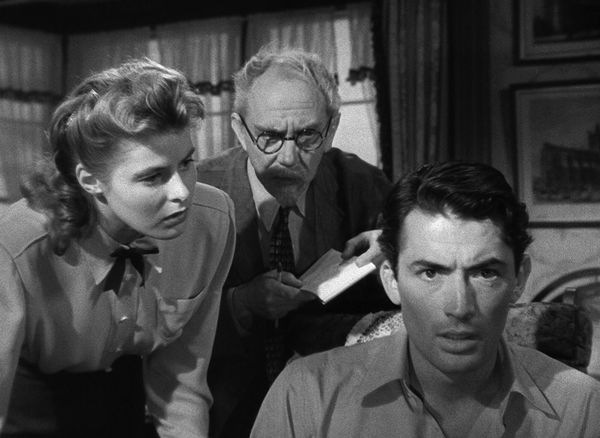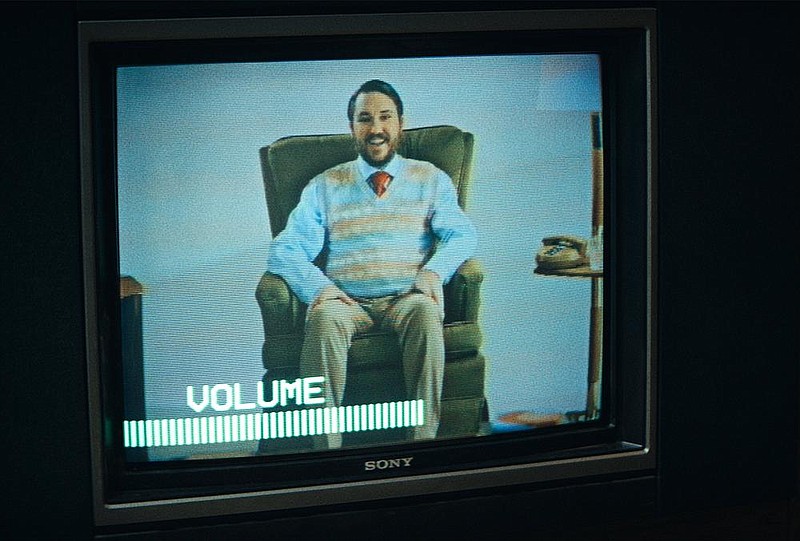Malmkrog / Manor House (2020, Cristi Puiu)

Daunting, dark and verbose - Manor House may just be scaring away audiences with its 201-minute runtime and promise/threat of non-stop philosophy and theology on screen. Sparse in setting and exposition, the action takes place entirely within and outside a large estate, the titular Manor House, as the residing couple and their guests - all members of the ruling class - enjoy an elaborate Christmas dinner. Throughout the evening engage in in-depth discussions of Christianity, war, politics, morals, enlightenment, good and evil.
One thing that is slowly intriguing is the quiet craft of Cristi Puiu (best known for The Death of Mr. Lazarescu). He varies the style each scene is shot with a great degree of restraint and deliberation. The changes are subtle but vary from few cuts and a moving camera of full figures to scenes composed entirely of intimate close-ups, to restrained scenes from afar, with characters suddenly removed from their previous importance. Divided into 6 sections, each bearing a character's name, and often taking place in a singular room, such as the library, lounge or dining room, this nuanced filmmaking adds an additional sense of cinematic power, urgency and dynamism - ripe, in itself, with possible interpretations and implications.


It is tempting to draw a slightly misleading, but still accurate comparison to My Dinner with Andre, as both are films that build suspense and intrigue through dialogue, stories and discussion - but the tone and purpose of these films could hardly be further apart. However, where the more light-hearted 80s offering intends to make us lose ourselves in the stories and discussion of the two main characters, Manor House wishes the opposite. It actively wants us to observe from a distance, consider what they are saying, consider why and even consider the context we are placed in, and who it is making the arguments.
There are beautiful subtle touches just in the use of language. The action takes place in Russia (note, the film is Romanian and shot in Romania) but the common language of our 5 ruling class characters is French. When they speak to their servants, the language is often German. When they quote literature, it may indeed be English. These are not everyday Russians, but the ruling class - and their morals, values and arguments are often an example of their own privileged worldview and to advance their own interests, or simply their own ego or sense of self. Few scenes speak to this clearer than their discussion of Europe, and whether or not they are European. There is a clear disdain for the majority of the population from most of the participants and in general, the discussions are purely theoretical and consists of pretentious posturing quite removed from reality.
There are a few cold wake-up calls throughout the film, and a key shift already happens in act two, which is the only act with the name of a servant, rather than one of the 5 lead characters. Here, we see them continue their discussion, but obscured, the focus now on the servants around them - performing their menial tasks. There are even moments of humour here, as we see what happens behind the scenes, and the splendour of our leads become cemented in their appropriate context. There is also another event, which I will not spoil, which changes much of what we see afterwards.


There may also be interesting contrasts between the intention of the book itself, written by 19th-century philosopher Vladimir Solovyov and released posthumously as "War, Progress, and the End of History: Three Conversations, Including a Short Story of the Anti-Christ" aka "War and Christianity". While Solovyov's work (which I have not read) has been deemed prophetic, this adaptation feels ghostly - like spectres of the old world. Talks of the future can be looked at not just in their then reality, but in what we know of the wars that would break out and the events that have happened in the 120+ years since the book was first written.
Regardless of intention, and this is indeed left very open to interpretation - the face of the old world, coupled with tense lighting, excellent and subdued performances and striking dialogue make Manor House an increasingly engrossing, if not chillingly unnerving experience. It is a dense film, possibly a difficult film, but also a thoroughly immersive experience if you are of the right mindset. Despite our protagonists often being seated or standing still, Manor House can only be described as an active film - and no, this is not a contradiction. It asks you to actively engage in what you see - to make judgments and assessments - and try to reach your own conclusions and interpretations. If this sounds like your type of film, I can not recommend it enough. If not, it may be better to let it rest. 8.5/10.

























